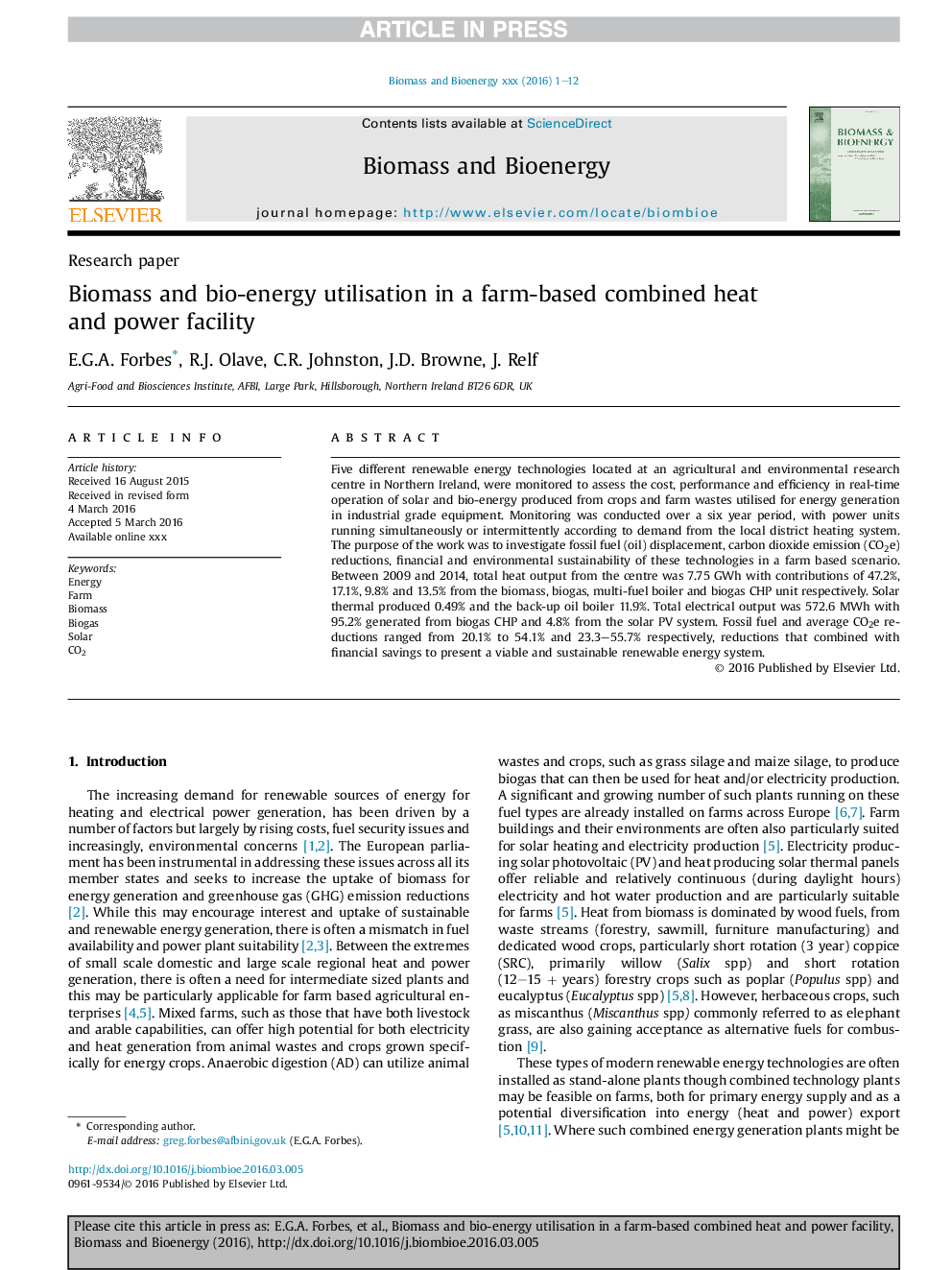| Article ID | Journal | Published Year | Pages | File Type |
|---|---|---|---|---|
| 7063315 | Biomass and Bioenergy | 2016 | 12 Pages |
Abstract
Five different renewable energy technologies located at an agricultural and environmental research centre in Northern Ireland, were monitored to assess the cost, performance and efficiency in real-time operation of solar and bio-energy produced from crops and farm wastes utilised for energy generation in industrial grade equipment. Monitoring was conducted over a six year period, with power units running simultaneously or intermittently according to demand from the local district heating system. The purpose of the work was to investigate fossil fuel (oil) displacement, carbon dioxide emission (CO2e) reductions, financial and environmental sustainability of these technologies in a farm based scenario. Between 2009 and 2014, total heat output from the centre was 7.75 GWh with contributions of 47.2%, 17.1%, 9.8% and 13.5% from the biomass, biogas, multi-fuel boiler and biogas CHP unit respectively. Solar thermal produced 0.49% and the back-up oil boiler 11.9%. Total electrical output was 572.6Â MWh with 95.2% generated from biogas CHP and 4.8% from the solar PV system. Fossil fuel and average CO2e reductions ranged from 20.1% to 54.1% and 23.3-55.7% respectively, reductions that combined with financial savings to present a viable and sustainable renewable energy system.
Related Topics
Physical Sciences and Engineering
Chemical Engineering
Process Chemistry and Technology
Authors
E.G.A. Forbes, R.J. Olave, C.R. Johnston, J.D. Browne, J. Relf,
